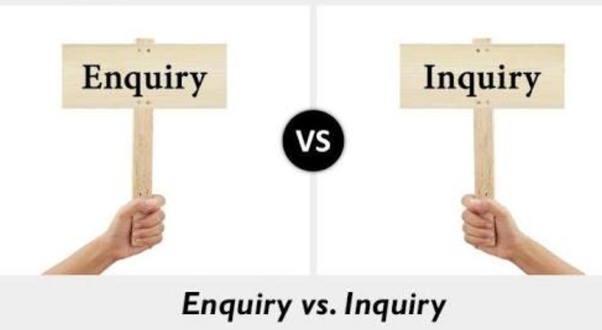 An occasional column that celebrates finer distinctions in the English language
An occasional column that celebrates finer distinctions in the English languageenquire/enquiry, inquire/inquiry
From the time that enqui re/inquire came into English from the Old French enquerre (modern French enquérir) in the 13c. until the early 20c., forms with the initial en- or in- were used with roughly equal frequency with no difference in meaning.
re/inquire came into English from the Old French enquerre (modern French enquérir) in the 13c. until the early 20c., forms with the initial en- or in- were used with roughly equal frequency with no difference in meaning.
 re/inquire came into English from the Old French enquerre (modern French enquérir) in the 13c. until the early 20c., forms with the initial en- or in- were used with roughly equal frequency with no difference in meaning.
re/inquire came into English from the Old French enquerre (modern French enquérir) in the 13c. until the early 20c., forms with the initial en- or in- were used with roughly equal frequency with no difference in meaning. At present, the in- forms are dominant for all senses in American English, whereas in British English there is a tendency to prefer the in-forms for official or formal types of investigation and (to a lesser extent) the en- forms for routine or general types of information-seeking. The differences in BrE are seen in these typical collocations: (formal investigation) inquiry agency; judicial inquiry; public inquiry; a committee of inquiry; (general information-seeking) enquired after her health; several enquiries about joining the Club; I’ll enquire what time the show starts. The distinction is, however, still far from absolute.
In AmE the noun inquiry is often pronounced with emphasis on the first syllable, i.e. /’inkwiri/
In Australian English, we use either spelling although enquire and enquiry for the general sense of ‘ask’, and inquire and inquiry for a formal investigation, is preferred.
Sources: Fowler’s Dictionary of Modern English Usage, Fourth Edition, 2015 and